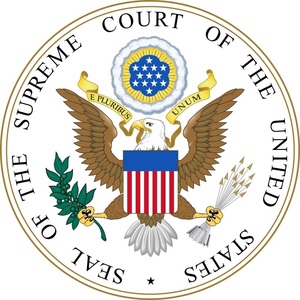Biofuel groups applaud Supreme Court ruling on SRE venue case

June 18, 2025
BY Erin Voegele
The U.S. Supreme Court on June 18 ruled that the U.S. Court of Appeals for the D.C. Circuit is the proper venue for legal challenges to the U.S. EPA’s small refinery exemption (SRE) decisions. Biofuel groups are applauding the decision.
Under the Renewable Fuel Standard, small refineries are able to petition the EPA for waivers to relieve their RFS blending obligations for a given compliance year. The EPA may approve the SRE petition if the agency determines that the small refinery has demonstrated disproportionate economic hardship, as determined under RFS regulations.
The SRE program has been subject to numerous lawsuits, including one stemming from decisions made by EPA in 2022 to deny more than 100 SRE petitions filed by 36 small refineries located in 18 states.
Advertisement
Advertisement
Numerous refineries challenged the denials in the Third, Fifth, Seventh, Ninth, Tenth, Eleventh, and D.C. Circuit Courts. All regional circuits except the Fifth Circuit concluded that only the D.C. Circuit was the proper venue to hear the challenges and either dismissed or transferred the challenges to the D.C. Circuit. The Fifth Circuit Court, however, denied EPA’s request to transfer the challenges to the D.C. Circuit court, holding that the SRE denials were “locally or regionally applicable” rather than “national applicable.” The Fifth Circuit Court proceeded with the challenges and in November 2023 ruled in favor of the small refineries, remanding six SRE petitions to the EPA for reconsideration. Biofuel groups submitted requests for rehearings with the court, which were ultimately denied.
Growth Energy and the Renewable Fuels Association in May 2024 jointly petitioned the Supreme Court to overturn the Fifth Circuit’s decision. In their petition, Growth Energy and RFA argued that challenges to those denials should be adjudicated solely in the U.S. Court of Appeals for the D.C. Circuit, not in regional circuits like the Fifth, which only covers Louisiana, Mississippi, and Texas. In contrast to all other U.S. Courts of Appeals that evaluated this venue issue, the Fifth Circuit concluded that it was the proper venue to hear and rule on these challenges, despite the fact that EPA’s SRE policy is “nationally applicable” and “based on a determination of nationwide scope or effect.”
The Supreme Court on Oct. 21, 2024, announced it would take up the case. Oral arguments in the case were heard on March 25, 2025. During the hearing, the RFA and Growth Energy urged the court to reject the argument by refineries that would allow them to “forum shop” for more favorable venues to challenge recent SRE denials despite clear direction from Congress that those decisions should be adjudicated in the U.S. Court of Appeals for the D.C. Circuit.
Advertisement
Advertisement
The Supreme Court on June 18 issued its decision, finding that the U.S. Court of Appeals for the D.C. Circuit is the proper venue for legal challenges related to SRE decisions.
"Today’s decision is a victory for the American biofuels industry and for the rural communities that depend on a strong Renewable Fuel Standard (RFS),” said RFA and Growth Energy in a joint statement. “The Court agreed with our argument that the D.C. Circuit is the only appropriate venue for litigation on EPA’s SRE decisions. Because the RFS is a national program and SREs have nationwide impacts, any challenges to SRE decisions belong squarely in the D.C. Circuit. Allowing 12 different Circuit Courts to adjudicate SREs would result in a fractured and inconsistent body of law, causing chaos and confusion in the marketplace. The court’s opinion today gives farmers and ethanol producers much greater certainty about SRE litigation under the RFS, which continues to be one of the nation's most successful clean energy programs."
"We applaud and support the ruling by the Supreme Court today requiring SRE appeals to be heard in the D.C. Circuit because the Renewable Fuel Standard is obviously national in scope,” said Brian Jennings, CEO of the American Coalition for Ethanol. “Today’s ruling ensures refiners can no longer 'venue shop' in search of appeals courts that may look favorably upon their SRE complaints, and helps give EPA direction on the pending SRE petitions. We urge EPA to take a judicious and lawful approach to SREs going forward."
Related Stories
CoBank’s latest quarterly research report, released July 10, highlights current uncertainty around the implementation of three biofuel policies, RFS RVOs, small refinery exemptions (SREs) and the 45Z clean fuels production tax credit.
The U.S. EPA on July 8 hosted virtual public hearing to gather input on the agency’s recently released proposed rule to set 2026 and 2027 RFS RVOs. Members of the biofuel industry were among those to offer testimony during the event.
The USDA’s Risk Management Agency is implementing multiple changes to the Camelina pilot insurance program for the 2026 and succeeding crop years. The changes will expand coverage options and provide greater flexibility for producers.
President Trump on July 4 signed the “One Big Beautiful Bill Act.” The legislation extends and updates the 45Z credit and revives a tax credit benefiting small biodiesel producers but repeals several other bioenergy-related tax incentives.
CARB on June 27 announced amendments to the state’s LCFS regulations will take effect beginning on July 1. The amended regulations were approved by the agency in November 2024, but implementation was delayed due to regulatory clarity issues.
Upcoming Events










